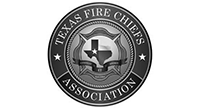LAW ENFORCEMENT PSYCHOLOGICAL EVALUATIONS
Many states require all law enforcement officer applicants to pass a Pre-Employment Psychological Evaluation (PEPL) performed by a licensed psychologist or psychiatrist. Our licensed forensic psychologists employ the best practices for conducting PEPL for law enforcement officers, combining their deep knowledge of professional standards and guidelines with their clinical experiences with public safety, active-duty military, and veteran service members to provide an evaluation that is thorough and fair — for both applicants and the law enforcement agency itself. Depending on the needs of the applicant and agency, our ability to administer online standardized assessments, a HIPAA-compliant video interface for the clinical interview, and evening or weekend availability for appointments creates additional opportunities for remote clients and those with scheduling difficulties to complete these essential law enforcement screenings.

SUITABILITY EVALUATIONS
Within the public safety hiring process, it is imperative to ensure that those hired are medically and psychologically capable of handling the pressures, stressors, and job demands inherent in this occupation. Poor hiring decisions have the potential to drain an agency’s time and resources, but there is also the potential for direct and serious consequences for the individual, fellow officers, the agency, community, and society. Our suitability evaluations include: a background assessment, written assessments, psychological assessments and interview, as well as a medical record review. Given the complex nature of the collection, analysis, and integration of the psychological information, the psychological evaluation is completed by a trained, qualified, and licensed psychologist.

HUMAN PERFORMANCE ASSESSMENTS
All public safety professionals receive an annual online Human Performance Assessment (HPA) that focuses on the multifaceted dimensions of behavioral health and resilience. The data we receive back, and ultimately review with each person during their examination, allows us to spend the personal time and attention required to discuss how a public safety professional’s mental wellness affects their physical health, personal performance, and vice versa. Our assessments allow us to help people understand when to reach out for help and what help is available. Our online HPA uses the industry standard testing instruments to include PCL-5 (Posttraumatic Stress Disorder), PHQ-9 (Depression), ISI-7 (Sleep), Alcohol (Audit-C), Tobacco Use (FTND), and Anxiety (GAD-7), among others.

ORGANIZATION CLIMATE ASSESSMENT
Assessing your department’s organizational climate should be as routine as ensuring your building doesn’t have any leaks. You may wonder why it would be necessary to have a formal organizational assessment when you have an open-door policy and should already know what your people think. So many leaders share this same perspective. While it is admirable, many leaders severely underestimate the willingness of their team to bring forward pertinent issues and information. An organizational climate assessment affords your team an opportunity to honestly and anonymously provide feedback to the department about a number of important issues, to include burnout in the workplace, camaraderie, teamwork, sexual harassment, inclusion, alcohol use, and support. Many of these issues, if identified early, can easily be mitigated through discussions or expert presentations. This survey is a win-win for a department – you either confirm that your department and leadership are on the right track, fostering a healthy environment with few concerns, or you are able to identify blind spots in your organization and mitigate the impact as early as possible. In the end, a healthy team and positive culture and environment results in a better performing department.

PRE-CONDITIONING SUITABILITY SCREENINGS
Suitability screenings occur in the initial stage of the hiring process. For this type of evaluation, an employment offer is not required. This type of evaluation assesses a prospective hire’s personality factors that are relevant to their suitability for working in a public safety position. This type of evaluation does not address any psychological and/or medical problems or concerns. It is concerned only with normal personality traits (e.g., extraversion, conscientiousness, dependability). The suitability interview does not address any information that would be covered under the Americans with Disability Act.
POST-CONDITONAL PSYCHOLOGICAL SCREENINGS
Psychological screenings occur in the final stage of the hiring process. For this type of evaluation, a conditional employment offer is required. This type of evaluation assesses personality factors that are relevant to an individual’s psychological fitness for working in a public safety position, as well as their current level of emotional stability and psychological functioning. This type of screening may also be of particular use to agencies and organizations not related to public safety.

TWO-STAGE SCREENING
Although most departments/organizations only conduct a post-conditional psychological screening, some departments elect to use a two-stage process, also known as a bifurcated model. This allows for the assessment of the candidate’s personality at the beginning of the hiring process and an assessment of the candidate’s psychological fitness at the end of the hiring process. This model maximizes the amount of screening data that departments/organizations may utilize in making important hiring decisions as candidate’s are screened for both suitability and psychological fitness.

FITNESS FOR DUTY
Fitness for Duty evaluations can occur at any point during an employee’s career. Supervisor concern or external concern (e.g., from a medical professional) about an employee’s ability to complete job-related tasks can initiate a fitness for duty evaluation. The psychologist will review any medical records related to the issue or concern, as well as any employment records detailing the individual’s performance at work. The report will provide a recommendation regarding the employee’s fitness to perform specific job duties or requirements and the employee’s ability to resume unrestricted duty. The report may find the employee to be fit for duty without restrictions, fit for duty with certain restrictions or modifications, or unfit for duty.
PROFESSIONAL COLLABORATIONS

















